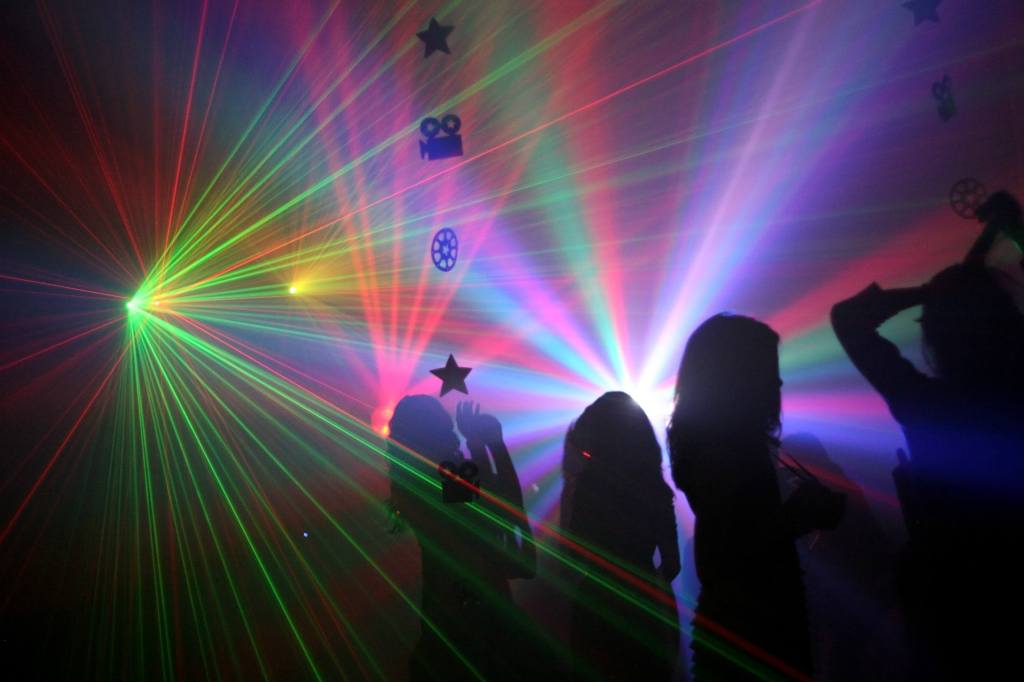No Time Wasters Please

Before I begin, let me say: I have worked on dozens of shows with amazing and wonderful people. The thought process that follows describes rare, bad moments. Alas, however, the bad moments are always more interesting than the good ones, so with that caveat in mind, now Read On…
Sometimes – rarely – it’s possible as a techie to feel massively under-appreciated. My ego is a fairly robust beast, fed on a heady diet of self-delusion and arrogance, but every now and then it wavers.
Sometimes it wavers because I’ll have worked my backside off to create a bit of lighting under incredible pressures, and no one notices. That’s fine: it’s GOOD if people don’t notice the lighting, it implies that what they actually experienced was the show. Hurrah and sucess! But when the curtain falls on a good first night, an orgy of congratulations tends to run around between cast members and crew; sweaty hugs abound, merry (and sometimes entirely false) cries of ‘darling, you were wonderful!’ ripple through the backstage corridors while you, the lighting designer, sit in your darkened corner with a pile of scribbled notes. This is fine; discretion is part of a technician’s professionalism, and I take pride from that fact. The expertise and effort I bring to a production is obscure. Only very rarely will I be tempted to ever-so-slightly roll my eyes as someone who’s seen me in a rehearsal room for four weeks, and at an LX desk for another two, and who should therefore knows better, says, ‘yeah, she’s the lighting girl’.
‘No!’ replies my soul silently. ‘I am the lighting designer! I was trained at the Royal Academy of Dramatic Arts, I slogged my way through two years of being a technician at the RSC and the National Theatre, I’ve worked for some fantastic LDs, created horror with nothing but shadows, made audiences scream at a lighting strike, caused figures to magically appear, created a time and a place on an empty stage with nothing but the sharpness of a lens, tricked the eye and through the eye, the heart, into believing in a thing which would otherwise just be words and gestures. I can recognise thirty different shades of pale blue at a glance and tell you exactly which ones will feel like winter, which like the summer’s sky; can fault find myriad electrical things and know how the light from a parcan will be different from the light off a S4 jnr zoom, and how that might be good or bad depending on your show. I have spent nine months in meetings with the director and designer trying to find a way to cast a spell over the audience’s mind and no one bothers to question how a shed in east London actually came to be Elsinore. I AM NOT THE LIGHTING GIRL.’
I do not say these things. Because at the end of the day, I am 90% proud of my anonymity, and only 10% mildly annoyed that no one in my team has noticed that I haven’t t left my lighting desk for three days or had a chance to eat.
However, there is one thing that is guaranteed to piss me off – and that’s when you waste my time. There is sometimes a temptation to assume that, because you’re paying a lighting designer, you can muck them around. If you were paying me more than an average of £3 per hour for my time on an average production, perhaps, perhaps, I would be a touch more zen about it, but generally, most people aren’t. It can be easy to forget how much work an LD does outside a rehearsal room. Sourcing kit, making plans, negotiating with hire companies, venue technicians, scheming and sweating over a design and a script – the time adds up fast. So, when in the midst of this I attend rehearsals having been assured you were rehearsing this, you are guaranteed to cause a slight ripple in my otherwise zen calm when it turns out that you’re rehearsing that.
“Sorry,” comes the explanation; “I know this morning we said we would, but now it’s the afternoon and we’re just not gonna get to it today.”
“Could you have told me that three hours ago, before I schlepped across town?” I do not reply. Sure, there’s an expectation of having designers in the rehearsal room and it’s absolutely, 100% essential. And sometimes rehearsals slip up on the schedule: fine. But having a lighting designer present for three hours of intimate discussion of what animal most symbolises your character, and whether you think your character had a difficult childhood… not so useful. Great for an actor: pants for an LD. You have succeeded in wasting my time.
Scheduling production meetings, then cancelling them without telling the LD: this pisses me off, particularly if the production meeting is an hour and a half journey for me each way and I’m on the train before I text you to find out that it’s not happening. I wish I could say this had only happened once.
My zen will totter further if, having belted through a technical rehearsal at unbelievable speed, you then prevent me doing my work by ‘going through a few bits’ on stage, or scheduling work on stage that could be done elsewhere. As a lighting designer, I need to be a in a theatre to do my job: your notes session with actors does not necessarily need to be in this space, particularly if I’ve only had 12 hours to do a tech whereas your cast have had 4 weeks. Producers are often tempted to cut down on technical time to save money; too often this is a false economy, as things will go wrong in a rushed tech that then take more time to fix than if we’d just done it right the first time, not to mention the artistic cost. Because yes, as a lighting designer, I have a very strong artistic agenda, and seeing it sacrificed for the pressures of time always makes me sad, even if working with that is a painful part of the job. Under these circumstances, time in the venue becomes golden.
“It’s okay! You guys can come in for 9 a.m., you can do your work from 9 a.m. to 12 p.m., and at 12 p.m. we’ll come in and do work with the actors until 5.30 p.m. when the actors do their warm-up, then at 6.30 p.m. you can come back to do whatever’s left!”
“Well,” I reply as judiciously as I can, “it’s midnight now, and I’m not getting home until 1 a.m., so for me to come in at 9 a.m. means I’ll only have had six hours sleep at most. And if I resume work at 6.30 p.m. there’s only half an hour until the house opens, and the stage management team will need to be doing a full reset on stage with workers. You’re asking me to come in early, work flat out for three hours in which time I won’t be able to achieve what I need to do to be satisfied artistically with the show, and then sit around for six and a half hours twiddling my thumbs.”
“Sorry – that’s just how it has to be; but do you mind sticking around in the space, in case something comes up?”
What about doing jobs that aren’t part of a lighting designer’s remit? I have painted floors and helped rig scenery, all while working as a lighting designer, because that’s what it takes to get the show done and that’s not a problem. I can’t do my job until everything else is ready, and if my helping to get it done means we’re all happier and calmer and I can actually see what I’m supposed to be lighting it’s a universal win. Give me a paint brush and a step ladder: I’m there.
On the other hand, is it fair to ask your lighting designer to go flyering, for example? I am a huge fan of all teams pulling together, but then again, if I am being paid £3 an hour or less, do I want to spend even more of my time in the rain trying to force leaflets onto strangers? If the rest of the cast are doing it, then it’s hard for me to say no, and usually I won’t, but then again, it’s not only my time you are buying, it’s my skill-set. My very, very obscure skill-set that has been cultivated over many years, that’s what you’re paying for, and in purchasing it, you should not assume you bought all of me as well. Feel free to ask, I’ll probably help if I can: don’t take it for granted.
Sometimes, this taking-for-granted can reach comic levels. I think one of the low points was when on tour with a show, I was asked to give up my bedroom to a couple of friends of the cast – friends who weren’t involved in the show – so that they could have a bed for the week.
“Where will I sleep?” I asked.
“We thought about this! We thought you could go on the sofa in the kitchen!”
“The… kitchen?”
“Yes.”
“The ONLY communal space in the flat, where breakfast is from seven a.m. and supper can go on until midnight; the place where people go to get a drink of water, make a cuppa tea, cook lunch, fry fish, have meetings, the place whose door is always open, you want me to sleep, and work, and get undressed and brush my hair and live my life for a WEEK, in the kitchen?”
“Yes. Isn’t that ok?”
“I’d rather share a bedroom, if that’s alrightI don’t mind being on a sofa for a week, or an air mattress on the floor, but bedrooms have doors you can actually close.”
“Yeah, the thing is… none of us are willing to share our bedrooms.”
The people who uttered these words were lovely. Lovely, talented, intelligent individuals, who seemed to struggle to grasp why I might find their suggestion difficult. Indeed, they seemed so surprised by my refusal to sleep in the kitchen, that for a while I wondered if I was being unreasonable. But no: I wouldn’t ask anyone who was a guest in my house to sleep in the kitchen, I would do everything in my power to prevent it, and if it was vital, I’d do the sleeping-in-the-kitchen bit rather than anyone under my hospitality. This being so, how is it acceptable to ask someone who’s part of your creative team to not only give up their room, but give up their room to people who aren’t part of the show?
Is it because I am an employee? The lighting girl? Are we to suggest that you can treat guests better than you treat designers? Alas, this is the ugly implication that lurks beneath it all. Not merely beneath the notion that it’s okay to make your LD sleep in the kitchen so your mates can have a bed – that’s merely an outstanding glitch. But in every moment when you waste my time, in every casual dismissal of ‘oh yes, no, we’re not doing that actually’, on every occasion where, with a glib wave of your hand you ask me to be at a place, at a moment, and then reveal that there’s nothing for me to do and you forgot you asked; with every thoughtless dismissal, you are not only dismissing my efforts as a professional, but also quietly dismissing me. You’re wasting your lighting designer’s time. You’re also wasting the time of Cat Webb, the human being who lurks somewhere beneath my professional smile. You are taking a person for granted, and that isn’t acceptable at all.





